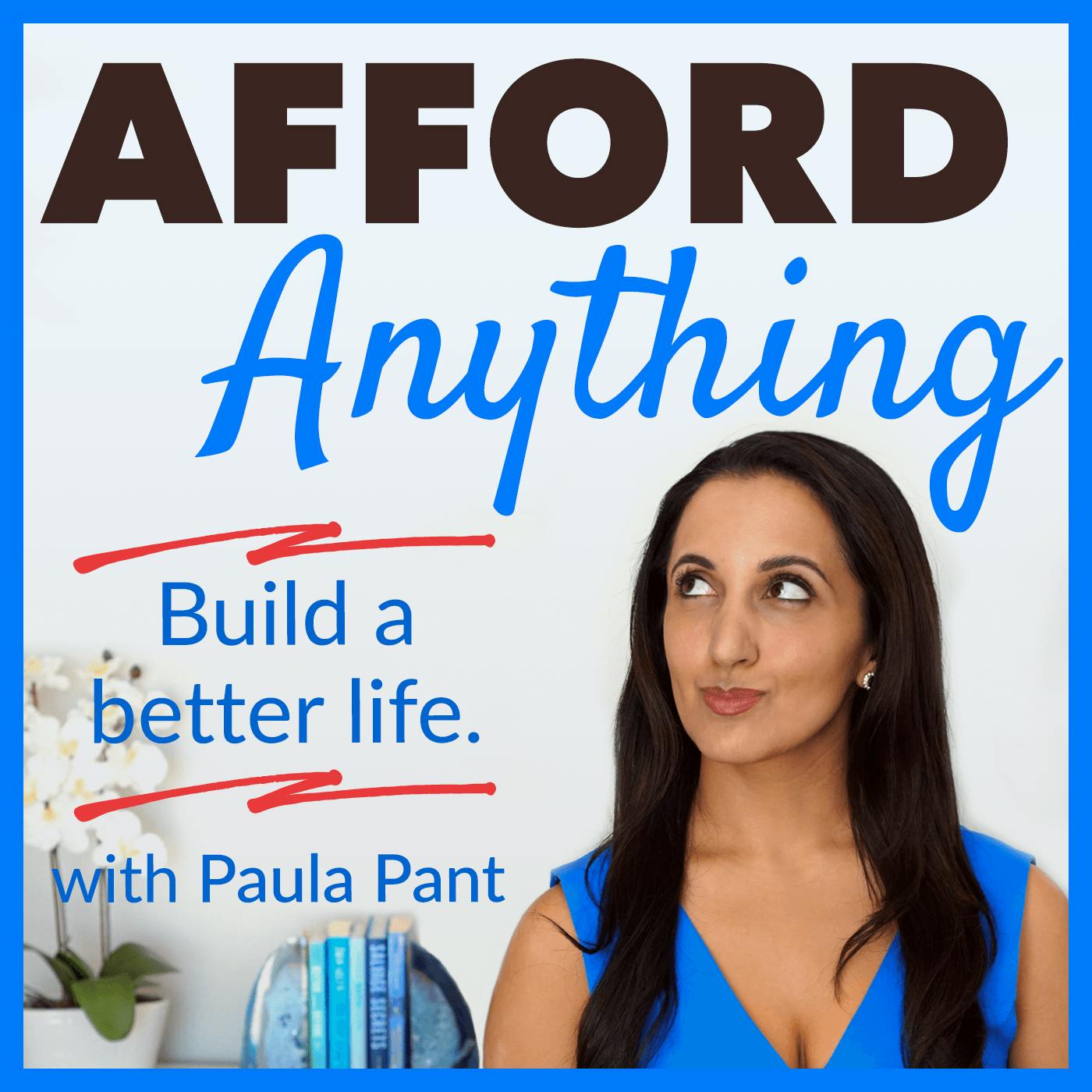

Afford Anything
Paula Pant | Cumulus Podcast Network
You can afford anything, but not everything. We make daily decisions about how to spend money, time, energy, focus and attention – and ultimately, our life.How do we make smarter decisions? How do we think from first principles?On the surface, Afford Anything seems like a podcast about money and investing.But under the hood, this is a show about how to think critically, recognize our behavioral blind spots, and make smarter choices. We’re into the psychology of money, and we love metacognition: thinking about how to think.In some episodes, we interview world-class experts: professors, researchers, scientists, authors. In other episodes, we answer your questions, talking through decision-making frameworks and mental models.Want to learn more? Download our free book, Escape, at http://affordanything.com/escape. Hosted by Paula Pant.
Episodes
Mentioned books

31 snips
Nov 3, 2023 • 36min
The GDP Grew 4.9 Percent, Unemployment is at a Near-Record Low … and Everybody’s Stressed About Layoffs
The podcast discusses the disconnect between the pessimistic sentiment and robust economic data. Topics include potential elimination of credit card rewards, the shutdown of the budgeting app Mint, the student loan repayment debacle, and a landmark court ruling against the National Association of Realtors. They explore the impact of interest rates on the housing market and lowering real estate commissions.

55 snips
Nov 1, 2023 • 50min
Ask Paula: Feeling FOMO About Your Home Equity? Here's What to Do
Lindy wants to better use her $300,000 equity without buying more real estate. Katie is concerned about redlining as she considers becoming a landlord. Claudia, from Germany, lacks knowledge about US real estate but wants to buy an apartment in Manhattan. The hosts tackle these questions and discuss options for utilizing home equity, the pros and cons of Section 8, the importance of local involvement, and advice on buying property abroad.

5 snips
Oct 26, 2023 • 1h 1min
How MICE Impacts Your Money, with Bryan Kuderna
Bryan Kuderna, a certified financial planner, shares a framework for setting priorities in money management. They discuss the importance of economic literacy and financial considerations for retirement and college planning. They also highlight the significance of respecting money and the role of compromise and ego in financial decision-making.

Oct 18, 2023 • 41min
Ask Paula: Use One Debt to Pay Off Another?
Paula and Joe analyze if using a HELOC to pay off a 401k loan is a good financial move. They discuss rent-to-own agreements and the impact of FEMA redrawing flood zone maps. They also explore lease options and lease purchases in real estate. The hosts share information about Every Plate meal kits and upcoming events.

20 snips
Oct 12, 2023 • 58min
How to Handle Medical Bills, with Dr. Virgie Bright Ellington
Dr. Virgie Ellington, medical billing expert and author, discusses the impact of medical bills and shares a roadmap for navigating them. Topics include signing financial agreements, negotiating bills, avoiding common mistakes, understanding incidental bills, and the importance of medical financial literacy.

Oct 6, 2023 • 34min
Good News for the Economy; Bad News for the Markets
Discussion on the current state of the economy, including the Fed's interest rate decision and better-than-expected jobs report. The impact of interest rate increases on companies and the importance of long-term investment strategy are also explored.

5 snips
Oct 4, 2023 • 48min
The Science of Friendship (and How It Improves Your Net Worth), with Dr. Marisa Franco
Renowned psychologist and author Dr. Marisa Franco shares insights on the significance of fostering meaningful connections and discusses the impact of lacking fulfilling connections. The episode explores the importance of workplace connections, practical tips on nurturing friendships, and the impact of friendships on behavior and well-being.

Sep 27, 2023 • 60min
Ask Paula: Student Loan Deferment HACK – How Christina Saved $60,000 in Interest
Topics covered: comparing job offers, financing a home conversion, finding excitement in auto-investing, saving $60,000 in student loan interest payments

28 snips
Sep 21, 2023 • 48min
Cracking the Code of the Rich, with Seth Stephens-Davidowitz
Seth Stephens-Davidowitz, a data scientist, shares counterintuitive insights about the narratives around becoming and staying rich. Topics include the businesses that quietly make people millionaires, unconventional successes and reliable paths, dangerous decision making, managing remote employees with JustWorks, the role of randomness and storytelling in the art world, the key to happiness, and three key takeaways.

Sep 13, 2023 • 52min
Ask Paula: A Year Off Work, a Career Change, and a Divorce: How to Make It Work
In this live episode, the hosts answer questions on navigating divorce financially and planning for a one-year sabbatical. They discuss the division of assets in divorce, the importance of forensic accountants, and strategically increasing income post-divorce. They also cover financial planning quadrants, incorporating VA disability payments into financial planning, and offer strategies for long-term planning. The episode ends with playful conversation and promotions.


